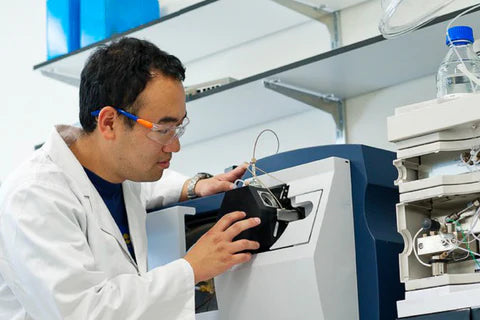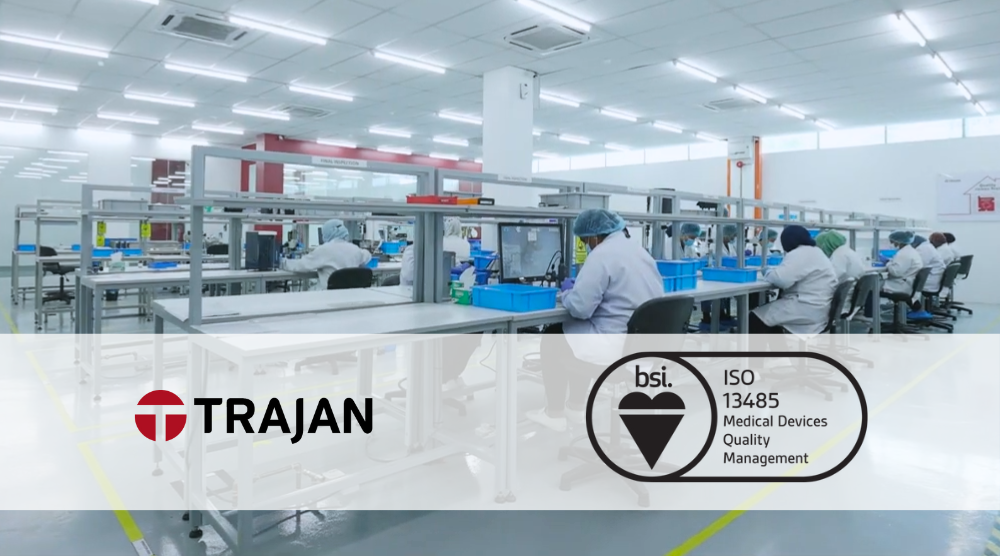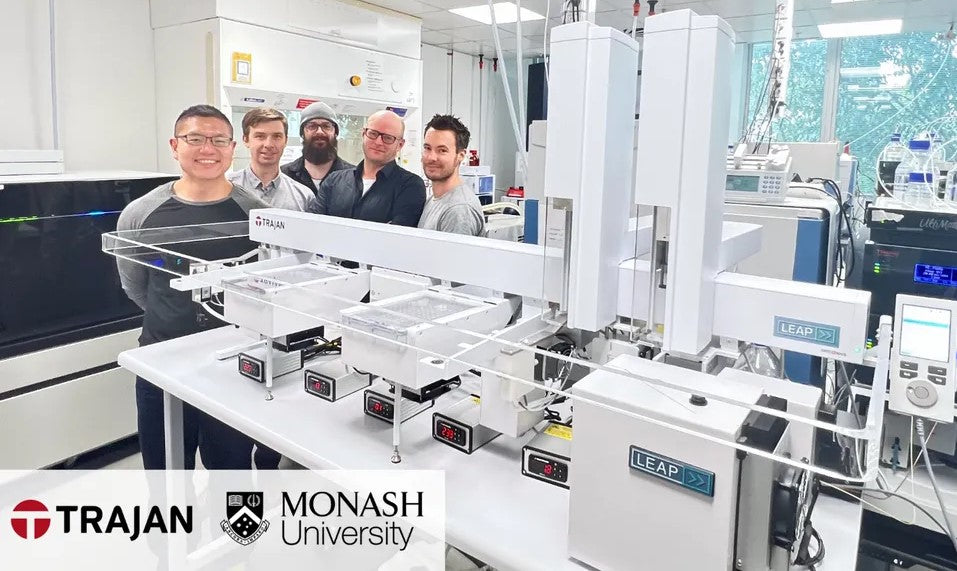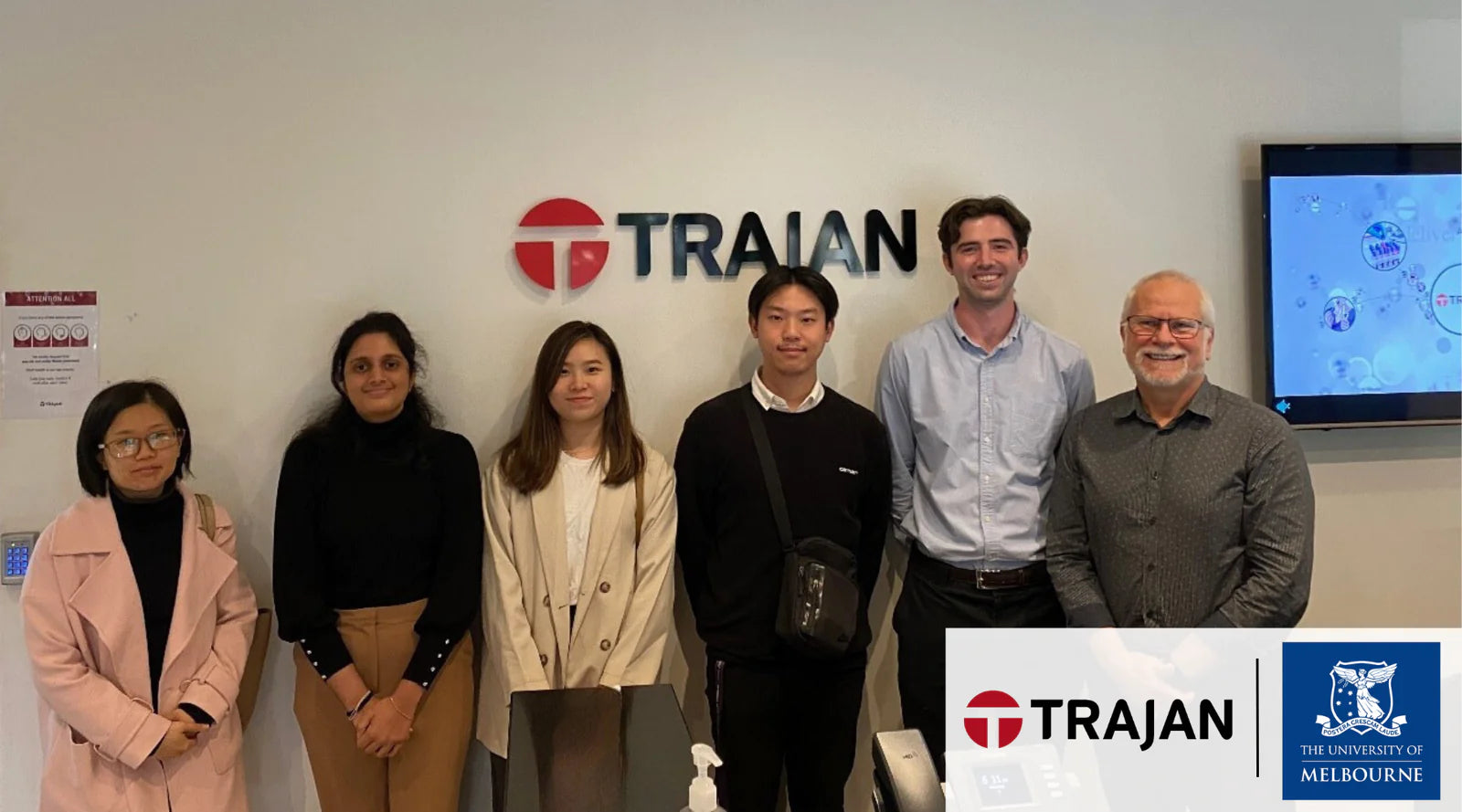This month, Trajan presents an interview with our Principal Scientist of Glass Science, Dr Herbert Foo, on the science of glass, his academic background, the impact of his work with glass and the future of photonics.
Read the full interview below:
1. What is your academic profile and how did you come into your current career path?
I spent my childhood and high school period in Hong Kong. In 2002, I left my hometown and came to Adelaide, Australia, to do my Bachelor's and Honours degree in Science, majoring in Chemistry. After graduation in 2005, I decided to stay permanently and start my career as a scientist in this beautiful country. Like most science graduates, I had no job preference as long as it was a paid job and Science related.
I started my science career in Australia as a casual research assistant in the Department of Wine science at the University of Adelaide. I then moved to a full-time role as a research officer in a Photonics Institute in the Department of Physics. This institute later became the current institute of photonics and advanced sensing (IPAS) in Adelaide.
I need to explain the word ‘Photonics’ here. It is a Science subject focusing on how to control light for various applications. One of which you use daily is optical fiber, which is the core of our global communication. Most of the optical fibers we use in communication are made from pure silica glass; which has the same composition as the sand on the beach.
My role as a material chemistry researcher at the institute focused on optical material research, including glass composition, coating formulation, and characterization. When I started and I think it is still true, there is no formal glass science training in Australia. Hence, my mentor, who later became my PhD supervisor, Professor Heike Ebendorff-Heidepriem provided me with on-the-job training. Heike has a formal PhD training in glass science from Friedrich Schiller University Jena, located in a small university town called Jena in Thuringia, Germany. This is the birthplace of Carl Zeiss Foundation, which branches out to global companies like Zeiss (a lens and scientific instrument company) and Schott (a glass company).
I found the job fascinating; I guess it is because I like challenging things that have a meticulous nature. In 2009, I decided to do a PhD in this area, my project was an industry project that aimed to develop a sensor coating on an optical fiber that can detect sodium ions. After my PhD, I stayed in the institute to manage daily research-related operations in the glass fabrication and characterization facility for another two years. In 2015, I joined Trajan’s research team as the resident glass expert. I am generally a technical consultant specializing in glass science, coating and material characterization for the Trajan group.
2. Why are you passionate about glass?
Although we have been using glass material since perhaps 3,600 years ago, scientifically, we only started to understand this material around 100 years ago starting with the founders of the Carl Zeiss Foundation. This is because glass is a complex material, and you must be meticulous in getting the process right.
"Glass making is a precision cooking process like making a dessert."
I always say glass making is a precision cooking process like making a dessert. I guess the challenging nature attracts me to understand a bit more about this area. In addition, solving an analytical problem of glass material is like solving a puzzle, which is very interesting to me. Furthermore, I used to make glass with different rare earth compositions or nanoparticles that make colorful glass with various fluorescence properties. This is an area where you can visually combine Science and Art, which gets a lot of wow factors after making such a beautiful piece of glass.
3. Do you have any stories that impact society around the work you do with glass?
Most of my work at Trajan has a direct impact on society. My work is closely related to the glass parts that are handling or transferring the sample into or between instruments. These small glass items are essential to many analytical workflows related to medical diagnostic, food safety or environmental monitoring.
More specifically, on new product development, I was part of the hemaPEN® product development team responsible for ensuring the functionality of glass capillaries for blood microsample collection. This product is revolutionizing the way we do health and nutrition monitoring. Another example are the glass emitters that I work on. This tiny glass item, which is approximately the thickness of a human hair, is the key to introducing samples into a sensitive analytical procedure for applications such as drug discovery, cancer detection etc.
4. Where do you see yourself and the work you do with glass going?
Like many other industries, the product development of the glass industry is moving towards using artificial intelligence (AI) and machine learning (ML) to assist and fast-track product design and formulation. These areas are what I am currently interested in, and contributing to the organization in this direction. Glass is one of the materials of the future. Certainly, we will see more and more new products made from glass material with novel properties. I am personally excited about the prospect of this field.



